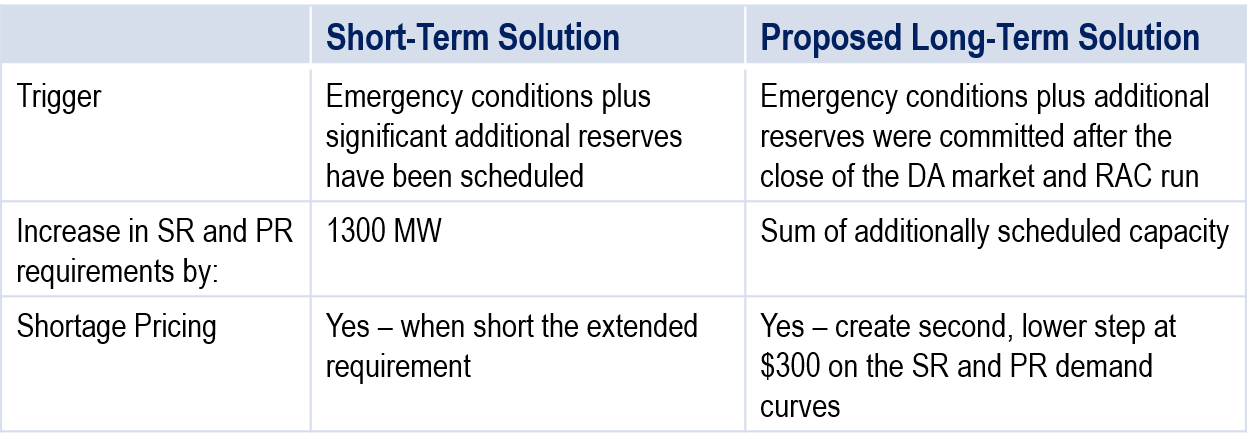By Suzanne Herel
The Federal Energy Regulatory Commission issued a deficiency letter last week asking PJM to justify its proposal for pricing reserves in emergencies (ER15-643).
The Jan. 27 letter from FERC’s Office of Energy Market Regulation gave PJM 15 days to respond to a series of questions about the RTO’s effort to reduce uplift and ensure that energy prices better reflect operator actions. (See PJM MRC OKs Change on Reserves; Interchange Limit Falls Short.)
The letter questioned PJM’s rationale in valuing extended reserves — reserves procured in addition to primary and synchronized reserves — up to $300/MWh. It also asked PJM how it plans to calculate additional reserve requirements for the day-ahead and real-time markets.
The changes outlined in PJM’s Dec. 17 filing were unanimously approved by the Members Committee on Nov. 21.
“PJM’s proposal merely ensures that the additional reserves already scheduled by PJM’s system operators are included in the updated reserve requirement used by PJM’s market clearing engines,” PJM said. “In this way, PJM will be better able to align market clearing prices with its system operators’ actions, while the total production cost of providing reserves will remain the same.”
The PJM Power Providers (P3) Group and Exelon filed comments in favor of the proposed revisions.
“PJM’s changes will reduce uplift, decrease price suppression and allow for reserves to be priced consistent with market conditions,” P3 said.
The group added, “The broad support for the proposal is an indication of the importance of getting reserve pricing correct and, perhaps more importantly, recognition of the need to procure additional reserves during times of system stress.”
Public Service Electric and Gas and two sister companies offered limited support.
“While a step in the right direction in improving the Tariff provisions concerning shortage pricing, the PJM filing is not a complete solution to achieve PJM’s stated objective — ‘to enhance PJM’s market rules to better capture actions into energy and reserve pricing.’”
PSE&G also said it disagreed “with PJM’s claim that the reliability contribution of primary reserves is necessarily greater than reliability value of ‘extended reserves’ deemed necessary by PJM’s own operators during times of system stress.”



